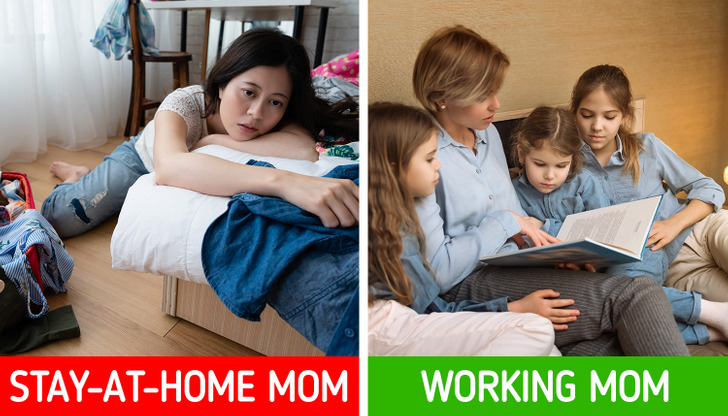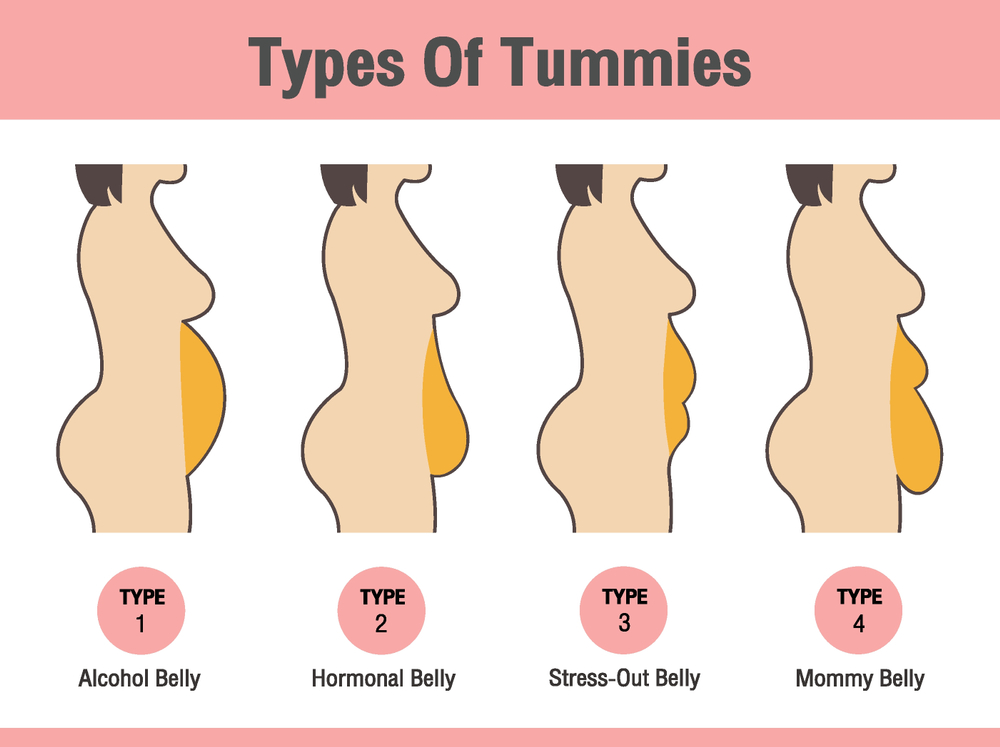Recent studies and expert analyses suggest that working moms often experience higher levels of happiness and better overall health compared to their stay-at-home counterparts. In today’s evolving society, the conversation around motherhood is no longer black and white. Both working moms and stay-at-home moms bring immense value to their families, yet emerging research highlights unique benefits for mothers who maintain a professional career. This article delves into the multifaceted advantages of working motherhood—including improved mental health, effective stress management, enhanced financial security, and positive impacts on child development.
Drawing from credible sources like Harvard Business Review and Pew Research Center, we explore how career engagement can boost a mom’s well-being, lead to more balanced parenting, and contribute to better outcomes for children. Read on as we break down the key aspects of why working moms are not only thriving but also setting new standards for modern parenting.
Are Working Moms Healthier and Happier?
Balanced Parenting: Both Working Moms and Stay-at-Home Moms Excel as Nurturing Caregivers

It’s essential to recognize that both working moms and stay-at-home moms are exceptional caregivers. Quality parenting is defined not by the number of hours spent at home, but by the love, guidance, and support parents provide. Working moms often develop highly efficient time-management skills, ensuring that their professional responsibilities complement rather than compromise their family life.
Key Points on Balanced Parenting:
- Quality Over Quantity: Whether balancing board meetings or school events, both groups prioritize quality time with their children. Working moms often maximize weekends and evenings to create memorable family moments.
- Diverse Skill Sets: The challenges of managing a career and a household can lead to increased organizational skills and resilience. These traits often translate into effective problem-solving and role modeling for children.
- Mutual Respect: Studies indicate that when both parents share responsibilities, children benefit from witnessing a balanced approach to work and life. This mutual respect fosters a nurturing environment regardless of whether a mom is working or staying at home.
By acknowledging the strengths of both parenting styles, we celebrate a holistic approach to family life. For more insights into balanced parenting strategies, check out American Psychological Association articles on effective parenting techniques.
Enhanced Health and Wellness: Why Working Mothers Often Lead Healthier Lives

One compelling advantage of working motherhood is the positive impact on health and wellness. Studies have shown that working moms may experience better mental and physical health compared to stay-at-home moms. Engaging in a professional environment can foster a sense of purpose and independence, which in turn promotes a healthier lifestyle.
Health Benefits of a Working Mom Lifestyle:
- Improved Mental Health: The stimulation of engaging with colleagues and overcoming professional challenges can boost self-esteem and reduce feelings of isolation. This positive mental state is often reflected in lower rates of depression and anxiety.
- Active Lifestyle: Working moms frequently incorporate exercise into their daily routines, whether it’s squeezing in a morning workout or taking a brisk walk during lunch breaks. Regular physical activity is known to reduce stress levels and improve cardiovascular health.
- Structured Routine: Balancing work and home life often forces working mothers to adhere to a structured schedule, which can improve sleep patterns, nutritional habits, and overall well-being.
- Access to Health Resources: Many working women have access to health benefits through their employers, such as gym memberships, wellness programs, and preventive health screenings. These resources play a crucial role in maintaining long-term health.
For further reading on the health benefits associated with working lifestyles, visit the Mayo Clinic’s wellness section.
Positive Child Outcomes: How Working Moms Contribute to Happier Children

An often-overlooked benefit of working motherhood is its positive impact on children. Far from negatively affecting child development, research suggests that children of working mothers may actually experience happier, more well-rounded lives.
How Working Moms Influence Child Happiness:
- Role Modeling: Children of working moms witness firsthand the importance of balancing career and personal life. This role modeling can instill values such as independence, diligence, and the importance of pursuing one’s passions.
- Enhanced Social Skills: With both parents often engaging in social and professional networks, children may have greater opportunities to interact with diverse groups, thereby enhancing their social skills and adaptability.
- Exposure to Diverse Experiences: Working mothers often bring new ideas and experiences home from their workplace, enriching their children’s learning environment. This exposure can lead to improved cognitive development and creativity.
- Quality Time: Despite busy schedules, many working moms prioritize dedicated family time. Research indicates that quality interactions, rather than sheer quantity, are most beneficial for a child’s emotional well-being.
For an in-depth analysis on how parental work status affects child development, explore resources available at Child Development Institute.
Effective Stress Management: How Working Women Excel in Handling Pressure

One of the significant advantages that many working moms report is a superior ability to manage stress. Juggling multiple roles—professional responsibilities, family care, and personal time—naturally builds resilience and stress management skills.
Stress Management Strategies of Working Moms:
- Structured Scheduling: The need to balance deadlines with family commitments often leads to the development of effective time management skills. This structure minimizes chaos and reduces daily stress.
- Mindfulness Practices: Many working mothers incorporate mindfulness techniques such as meditation, yoga, or simple deep-breathing exercises into their routines, which can mitigate stress and enhance overall mental clarity.
- Support Systems: Engaging with colleagues and joining professional networks provide working moms with robust support systems. This social network not only offers practical advice but also emotional support during challenging times.
- Problem-Solving Skills: Regularly navigating workplace challenges strengthens a mom’s ability to find creative solutions to everyday problems, reducing feelings of overwhelm.
For more strategies on effective stress management, check out Stress Management Society for expert advice and practical tips.
Financial Security and Role Modeling: How Working Women Can Provide for Their Children

Financial stability is a critical factor in ensuring a secure and nurturing environment for any family. Working mothers have the advantage of contributing significantly to the household income, thereby providing not only economic security but also setting a strong example for their children.
Key Financial and Role Modeling Benefits:
- Economic Independence: By earning their own income, working moms can make independent financial decisions that benefit the entire family. This financial security is crucial in today’s fast-paced world where unexpected expenses are common.
- Better Opportunities for Children: A stable financial foundation opens up a myriad of opportunities for children, from quality education to extracurricular activities that enhance their personal development.
- Empowerment and Confidence: The ability to provide for one’s family instills a sense of empowerment and self-confidence. Children observing their mom’s success are more likely to adopt a proactive and resilient attitude toward challenges.
- Investment in Future Growth: With greater financial resources, working moms can invest in their children’s future—be it through higher education, tutoring, or enrichment programs—laying the groundwork for long-term success.
For additional perspectives on financial planning for working parents, visit Forbes’ family finance section.
Building a Brighter Future: How Children of Working Mothers Grow Up to Be More Successful and Educated

The influence of working moms extends well beyond immediate household benefits. Over time, children raised in households with working mothers tend to exhibit higher levels of academic achievement and success in their careers.
Long-Term Benefits for Children of Working Moms:
- Educational Ambition: Children who see their mothers pursuing a career are more likely to value education and strive for academic excellence. This inspiration often translates into higher educational attainment and a drive for continuous learning.
- Work Ethic and Responsibility: Growing up in an environment where hard work and perseverance are modeled can instill a strong work ethic. Children learn that success requires dedication and effort, qualities that serve them well in adulthood.
- Critical Thinking and Independence: Exposure to diverse viewpoints and challenges through their working mothers fosters independent thinking and problem-solving skills. These traits are invaluable in both academic and professional settings.
- Emotional Resilience: The balanced approach to managing work and home life that working moms model often helps children develop robust emotional resilience. This ability to bounce back from setbacks is crucial for long-term success and personal growth.
For more comprehensive research on the impact of parental employment on child success, refer to studies available on Pew Research Center.
Conclusion: Embracing the Strengths of Working Motherhood
The evidence is compelling: working moms not only benefit from improved mental and physical health but also provide a nurturing, stimulating environment for their children. While both working and stay-at-home moms are outstanding in their own right, the advantages of maintaining a career extend beyond personal fulfillment. They contribute to stronger financial stability, enhanced stress management, and, ultimately, the holistic development of their children.
By embracing a balanced approach to career and family life, working moms serve as powerful role models. They demonstrate that it is possible to pursue professional ambitions while raising successful, happy, and well-adjusted children. The modern narrative of motherhood is evolving, and as more studies confirm the benefits of working motherhood, it’s clear that there is no one-size-fits-all approach to parenting. Each mother’s journey is unique, and the key lies in finding the balance that works best for her and her family.
In today’s dynamic society, success is measured not just by career achievements or academic accolades, but by the well-being and resilience of the entire family. Whether you’re a working mom looking for ways to optimize your time and energy or a stay-at-home parent striving for balance, the ultimate goal is to foster a nurturing environment where every member of the family can thrive.
For additional tips, expert advice, and the latest research on modern parenting and work-life balance, consider exploring resources from Harvard Business Review and Forbes. Embrace the strengths of working motherhood, celebrate your accomplishments, and remember that the journey to a happier, healthier family starts with small, positive changes every day.
Disclaimer: The opinions expressed in this article are based on recent studies and expert insights available at the time of writing. Every family’s situation is unique, and it’s important to consider your individual circumstances and consult with professionals when making decisions related to career and family life.
Preview photo credit Friends / Warner Bros. Television, lisakudrow/Instagram









